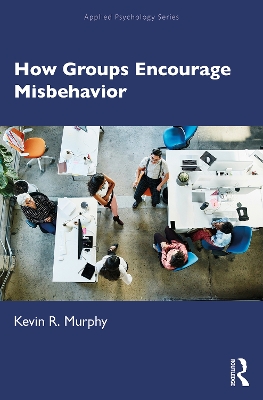Applied Psychology
3 total works
Women and Men in Organizations
by Jeanette Cleveland, Margaret S Stockdale, and Kevin R. Murphy
How Groups Encourage Misbehavior explores the psychological and social processes by which groups develop a tolerance for and even encourage misbehavior. Drawing from decades of research on social, cognitive and organizational psychology, as well as a deep well of historical research, this book shows how commitment to groups, organizations and movements can turn moral individuals into amoral agents.
Pulling together what have been traditionally distinct areas of study, How Groups Encourage Misbehavior provides a detailed and unified account of how good organizations go bad and how groups of all types can push otherwise honest and upright individuals to behave in ways that violate laws and social norms. This text describes how social norms, rationalization, the characteristics of formal and informal groups, attachment to groups and organizations, and the structure of organizational life can all contribute to misbehavior. Each chapter includes one or more sidebar discussions of relevant and interesting examples to illustrate the ways groups and organizations encourage and support misbehavior. The final two chapters discuss how many of these same attributes and processes can be used to encourage positive behaviors and foster recovery from dysfunctional and corrupt cultures and modes of behavior.
A valuable text for a broad range of psychology courses, How Groups Encourage Misbehavior will especially appeal to practitioners, scholars, and students interested in ethics in organizations and the intersection between social psychology and organizational behavior.


